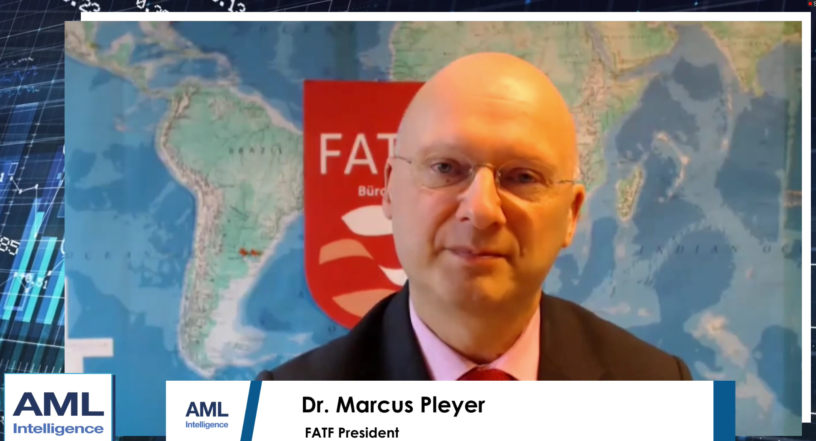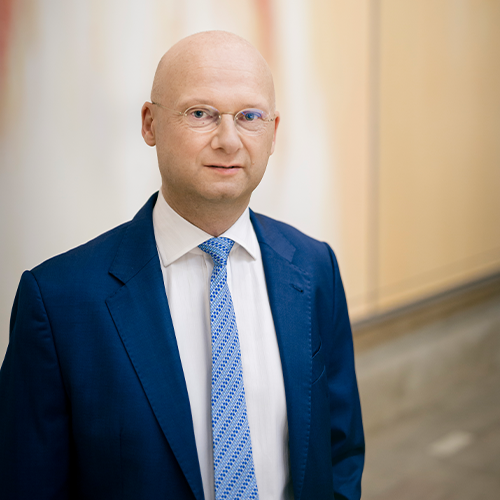For the last thirty years, the FATF’s mandate has evolved in line with new and emerging threats, but always with the core objective of preventing the criminals, corrupt and terrorists from abusing the international financial system.
The mutual evaluation process is at the heart of the FATF’s mandate. This peer-review exercise assesses countries’ compliance with the FATF standards and the effectiveness of their actions in tackling money laundering, terrorist and proliferation financing. Each mutual evaluation also provides the country with a roadmap and priority actions to strengthen their systems.
This month, the FATF issued a report on global compliance, the first of its kind. It analyses the findings of more than 100 Mutual Evaluations over the past decade, highlighting where progress has been made – and where we still need to make improvements.
Indeed, we see countries facing challenges when it comes to achieving results in practice. We see that weaknesses remain in investigating and prosecuting high-profile cross-border cases, and preventing anonymous shell companies and trusts from being used for illicit purposes.
This is the unique feature of the FATF: it is not just about having the legal frameworks in place – countries actually have to be effective in fighting money laundering and terrorist financing.
Often this means going beyond the minimum requirements to have a system in place that is fit for purpose, and one that can address the risks we all face. We need to support new and innovative ways to do this.
This is why bringing together industry leaders and stakeholders together, like you are doing today, is so important.
We need to push the envelope when thinking about how we can prevent financial crime from damaging our societies and our economies, and we need to do so together.
Digital Transformation and Virtual Assets
Under my Presidency, the FATF has been looking at some of the most pressing concerns of our time. Digital transformation is one such issue, and looking at its impact on AML/CFT has been a key priority for the FATF. We are exploring the myriad opportunities that new and emerging technologies provide in this space, as well as the challenges they pose.
We have been looking at how private sector information sharing and collaborative analytics can positively transform AML/CFT. This is key because financial institutions may only have a partial view of transactions, and multinational money laundering schemes clearly do not respect national boundaries.
Sharing information can help prevent the exploitation of information gaps that enable regulatory arbitrage by criminals, who may attempt to engage with multiple domestic and international financial institutions.
We are also studying the strategic, operational, and technical considerations that can promote wider application of machine learning and advanced analytics by financial intelligence units and law enforcement. We are also looking at ways to promote greater cooperation between authorities – including data protection and privacy authorities – to ensure a coordinated approach.
This will help us better understand and address the risks and benefits from the use of these new technologies, and fulfil the complementary policy objectives of AML/CFT, Data Protection and Privacy.
The use of virtual assets is another area where collective action is crucial. Over the last decade, we have seen extensive use of virtual assets for a range of crimes, including fraud, ransomware, and money laundering, and increasing risks of their use for terrorist financing and sanctions evasion.
To address these risks, the FATF was the first body to set globally binding standards for virtual assets in 2019. When we reviewed progress in 2021, we found that less than half of countries worldwide had the necessary legislation to implement these standards.
The message from the FATF is clear; Countries need to implement these standards as a priority.
This includes the travel rule, which is a key requirement for compliance with targeted financial sanctions. Virtual assets are inherently global, so an effective global regime relies on all countries doing their part.
PPPs
Now, I would like to speak about the focus of this Summit: Public-Private Partnerships.
I cannot emphasise enough the importance of cooperation across sectors in combatting money laundering, terrorist financing and proliferation financing.
The establishment of trust and confidence between public and private sectors is therefore fundamental in this fight.
Public-private-cooperation plays a role in two ways for the FATF: First of all, in our own way of work, and secondly, in our messages to governments and the private sector.
In our own work, stakeholder engagement is vital. Consultation of the private sector forms a regular part of our policy work, such as the current initiatives on Virtual Assets, Beneficial Ownership and Proliferation Financing, where we set out to establish dialog across many sectors and professions.
The FATF has been organising annual events such as the Joint Experts’ Meeting and the Private Sector Consultative Forum since 2007, bringing together practitioners impacted by the FATF’s work.
Public-private partnerships can take many forms, and we have seen successful experiences in many regions throughout the FATF’s Global Network.
For example, some countries have set up structures, bringing together public and private sectors to enhance the quality of suspicious transaction reports and their traction.
Sharing information is key to promoting financial transparency and protecting the integrity of the financial system. It provides financial institutions and relevant competent authorities with the intelligence, analysis and data necessary to prevent and combat money laundering and terrorist financing.
Similarly, financial institutions look to the public sector to share information on trend analysis, patterns of behaviour, targeted suspects or geographical vulnerabilities in order to better manage their risk exposure, monitor their transaction flows and provide a more useful input to law enforcement.
Public and private sector institutions can be source as well as target of information flow. The use of data in this manner highlights the importance of a continuous dialogue between the public and private sectors.
The reliance on shared information also underlines the increased focus of international efforts towards identifying potential barriers to information sharing which might impinge on the effectiveness of the system, and exploring possible policy and operational solutions to overcome them.
There is certainly no one-size-fit-all approach for Public-Private Partnerships, and any successful model will require commitment and resources, including priority, expertise and time, from both public and private partners.
From my own experience at the FATF, establishing and maintaining good relations can result in the private sector being willing to proactively reach out to policy makers and agencies, and to quickly respond to requests for information or cooperation.
This is an area where the FATF will continue seeking to improve, and to ensure maximum impact. We need to keep pushing the envelope and questioning how we can be more effective together, to protect our societies from crime and terrorism. Here at the FATF, we see PPPs as key to achieving this.
Beneficial Ownership
Before closing, I would like to touch on some recent developments in the FATF. The FATF continuously strengthens its global standards, the FATF Recommendations, to respond to new and emerging risks.
We have long warned about how anonymous shell companies and other structures enable organised criminal gangs, the corrupt and sanctions evaders to launder their dirty money. This is a key vulnerability that fuels many crimes.
In March, the FATF agreed on tougher global beneficial ownership rules to stop criminals from hiding their dirty money behind secret corporate structures.
Countries will now be required to ensure beneficial ownership information is held by a public authority or body functioning as a beneficial ownership registry, or an alternative mechanism as efficient. Countries should ensure rapid and efficient access to beneficial ownership information to competent authorities.
Countries will have to assess and mitigate the money laundering and terrorist financing risks associated with foreign companies to which they are exposed.
The FATF has also agreed to ban new bearer shares and to strengthen disclosure requirements for nominee arrangements, which will stop these being used to hide money laundering.
These changes signal real progress. And they would not have been possible without the engagement of many stakeholders, including companies and other legal persons, financial institutions, designated non-financial businesses and professions, and non-profit organisations.
Fighting financial crime is only effective if we work together. Financial intelligence clearly offers huge opportunities in this fight, and public-private sector partnerships can play a vital role in safeguarding the integrity of the international financial system, and contributing to safety and security.
I would like to thank you for the opportunity to speak to you at this important Summit.
Share this on:
Follow us on:









